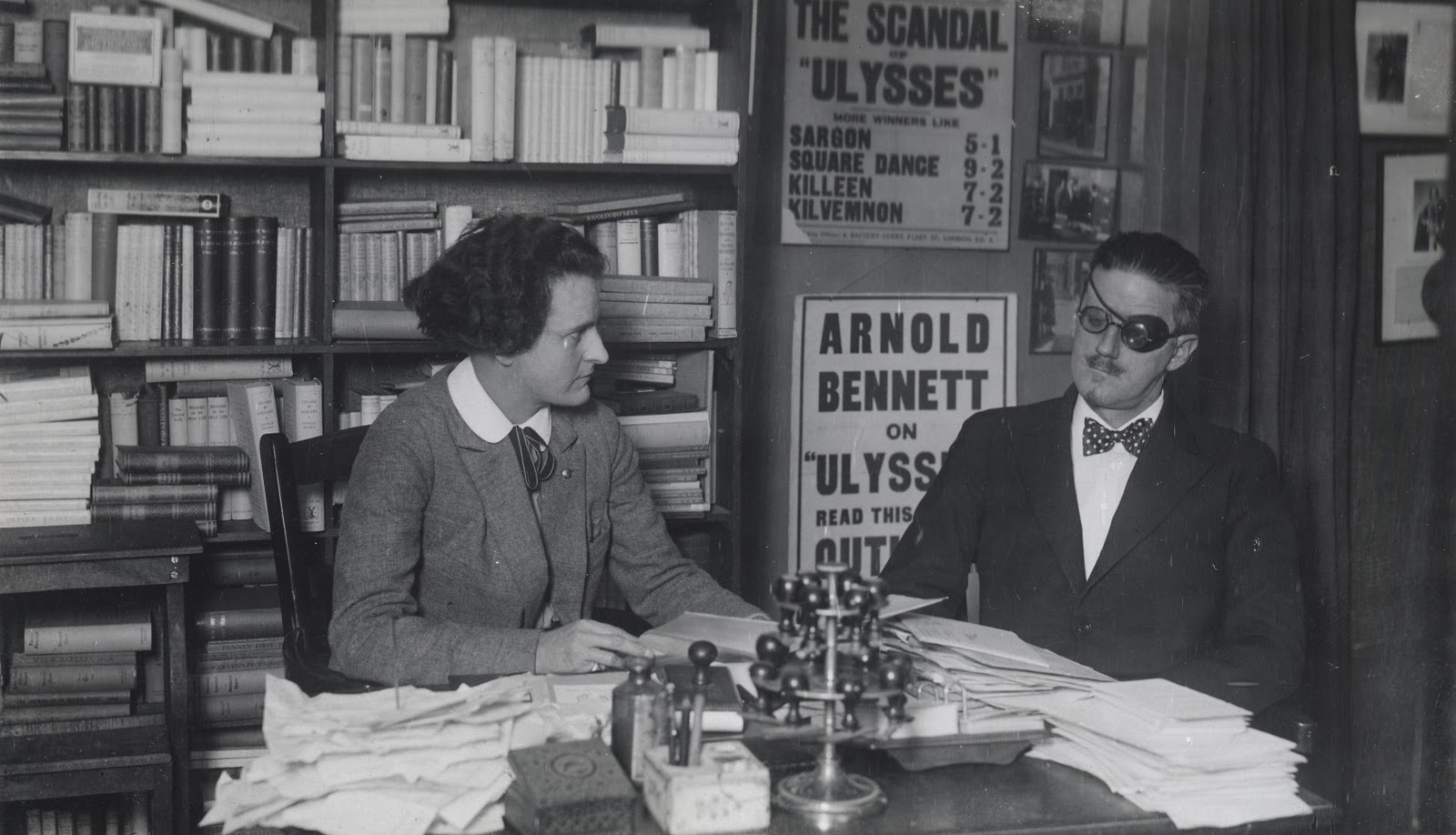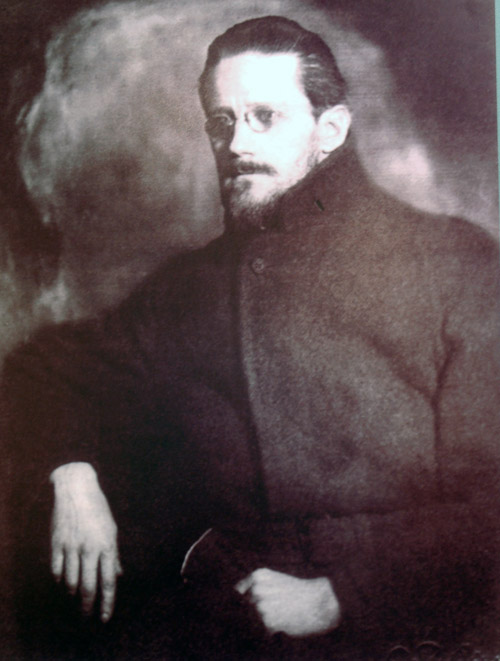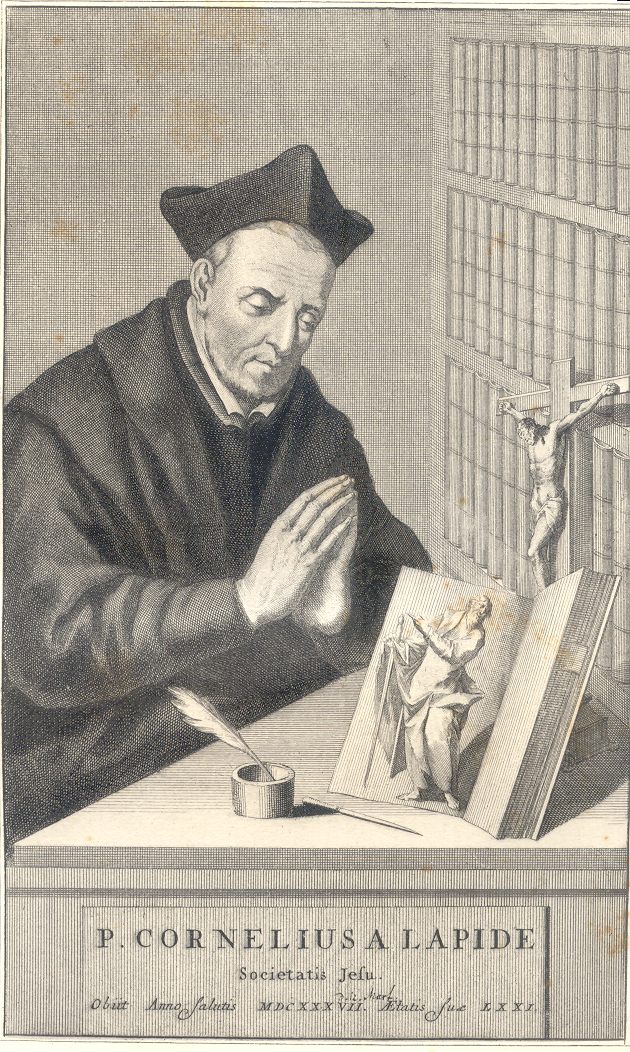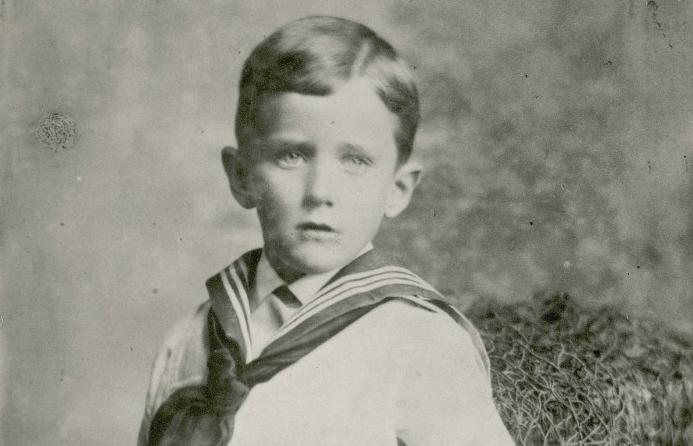
Disheartened, he raised his eyes towards the slow-drifting clouds, dappled and seaborne. They were voyaging across the deserts of the sky, a host of nomads on the march, voyaging high over Ireland, westward bound. The Europe they had come from lay out there beyond the Irish Sea, Europe of strange tongues and valleyed and woodbegirt and citadelled and of entrenched and marshalled races. He heard a confused music within him as of memories and names which he was almost conscious of but could not capture even for an instant; then the music seemed to recede, to recede, to recede, and from each receding trail of nebulous music there fell always one longdrawn calling note, piercing like a star the dusk of silence. Again! Again! Again! A voice from beyond the world was calling.
—Hello, Stephanos!
—Here comes The Dedalus!
—Ao!... Eh, give it over, Dwyer, I'm telling you, or I'll give you a stuff in the kisser for yourself... Ao!
—Good man, Towser! Duck him!
—Come along, Dedalus! Bous Stephanoumenos! Bous Stephaneforos!
—Duck him! Guzzle him now, Towser!
—Help! Help!... Ao!
He recognized their speech collectively before he distinguished their faces. The mere sight of that medley of wet nakedness chilled him to the bone. Their bodies, corpse-white or suffused with a pallid golden light or rawly tanned by the sun, gleamed with the wet of the sea. Their diving-stone, poised on its rude supports and rocking under their plunges, and the rough-hewn stones of the sloping breakwater over which they scrambled in their horseplay gleamed with cold wet lustre. The towels with which they smacked their bodies were heavy with cold seawater; and drenched with cold brine was their matted hair.
He stood still in deference to their calls and parried their banter with easy words. How characterless they looked: Shuley without his deep unbuttoned collar, Ennis without his scarlet belt with the snaky clasp, and Connolly without his Norfolk coat with the flapless side-pockets! It was a pain to see them, and a sword-like pain to see the signs of adolescence that made repellent their pitiable nakedness. Perhaps they had taken refuge in number and noise from the secret dread in their souls. But he, apart from them and in silence, remembered in what dread he stood of the mystery of his own body.
—Stephanos Dedalos! Bous Stephanoumenos! Bous Stephaneforos!
Their banter was not new to him and now it flattered his mild proud sovereignty. Now, as never before, his strange name seemed to him a prophecy. So timeless seemed the grey warm air, so fluid and impersonal his own mood, that all ages were as one to him. A moment before the ghost of the ancient kingdom of the Danes had looked forth through the vesture of the hazewrapped City. Now, at the name of the fabulous artificer, he seemed to hear the noise of dim waves and to see a winged form flying above the waves and slowly climbing the air. What did it mean? Was it a quaint device opening a page of some medieval book of prophecies and symbols, a hawk-like man flying sunward above the sea, a prophecy of the end he had been born to serve and had been following through the mists of childhood and boyhood, a symbol of the artist forging anew in his workshop out of the sluggish matter of the earth a new soaring impalpable imperishable being?
His heart trembled; his breath came faster and a wild spirit passed over his limbs as though he was soaring sunward. His heart trembled in an ecstasy of fear and his soul was in flight. His soul was soaring in an air beyond the world and the body he knew was purified in a breath and delivered of incertitude and made radiant and commingled with the element of the spirit. An ecstasy of flight made radiant his eyes and wild his breath and tremulous and wild and radiant his windswept limbs.
—One! Two!... Look out!
—Oh, Cripes, I'm drownded!
—One! Two! Three and away!
—The next! The next!
—One!... UK!
—Stephaneforos!
His throat ached with a desire to cry aloud, the cry of a hawk or eagle on high, to cry piercingly of his deliverance to the winds. This was the call of life to his soul not the dull gross voice of the world of duties and despair, not the inhuman voice that had called him to the pale service of the altar. An instant of wild flight had delivered him and the cry of triumph which his lips withheld cleft his brain.
—Stephaneforos!
What were they now but cerements shaken from the body of death—the fear he had walked in night and day, the incertitude that had ringed him round, the shame that had abased him within and without—cerements, the linens of the grave?
His soul had arisen from the grave of boyhood, spurning her grave-clothes. Yes! Yes! Yes! He would create proudly out of the freedom and power of his soul, as the great artificer whose name he bore, a living thing, new and soaring and beautiful, impalpable, imperishable.
He started up nervously from the stone-block for he could no longer quench the flame in his blood. He felt his cheeks aflame and his throat throbbing with song. There was a lust of wandering in his feet that burned to set out for the ends of the earth. On! On! his heart seemed to cry. Evening would deepen above the sea, night fall upon the plains, dawn glimmer before the wanderer and show him strange fields and hills and faces. Where?
He looked northward towards Howth. The sea had fallen below the line of seawrack on the shallow side of the breakwater and already the tide was running out fast along the foreshore. Already one long oval bank of sand lay warm and dry amid the wavelets. Here and there warm isles of sand gleamed above the shallow tide and about the isles and around the long bank and amid the shallow currents of the beach were lightclad figures, wading and delving.
In a few moments he was barefoot, his stockings folded in his pockets and his canvas shoes dangling by their knotted laces over his shoulders and, picking a pointed salt-eaten stick out of the jetsam among the rocks, he clambered down the slope of the breakwater.
There was a long rivulet in the strand and, as he waded slowly up its course, he wondered at the endless drift of seaweed. Emerald and black and russet and olive, it moved beneath the current, swaying and turning. The water of the rivulet was dark with endless drift and mirrored the high-drifting clouds. The clouds were drifting above him silently and silently the seatangle was drifting below him and the grey warm air was still and a new wild life was singing in his veins.
Where was his boyhood now? Where was the soul that had hung back from her destiny, to brood alone upon the shame of her wounds and in her house of squalor and subterfuge to queen it in faded cerements and in wreaths that withered at the touch? Or where was he?
He was alone. He was unheeded, happy and near to the wild heart of life. He was alone and young and wilful and wildhearted, alone amid a waste of wild air and brackish waters and the sea-harvest of shells and tangle and veiled grey sunlight and gayclad lightclad figures of children and girls and voices childish and girlish in the air.
A Portrait of the Artist as a Young Man, p.167.




